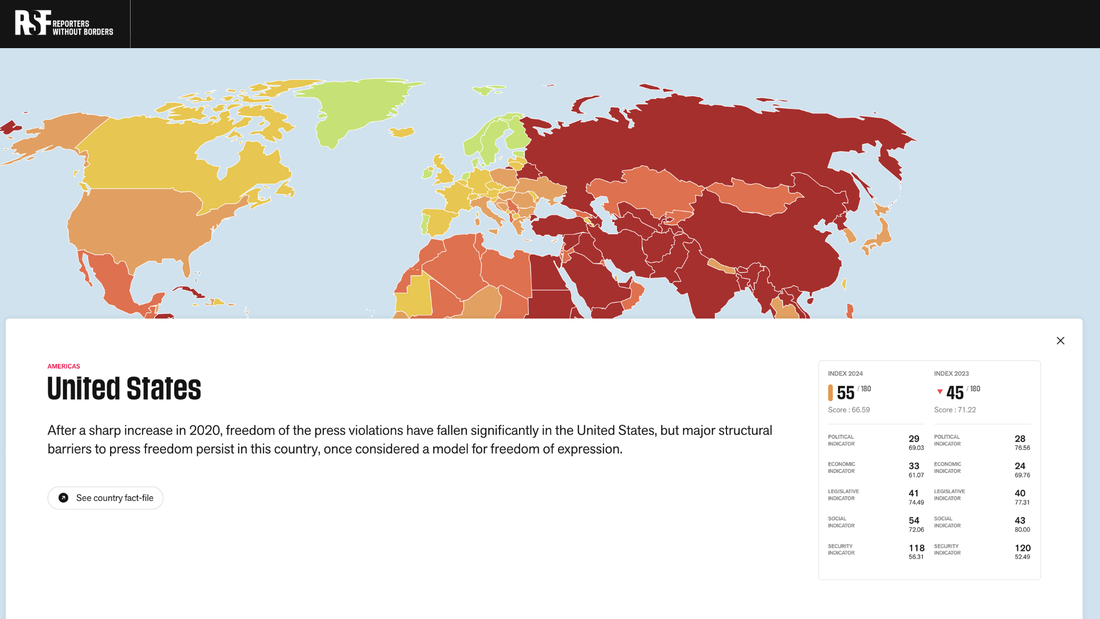|
Reporters Without Borders dropped the United States 10 places on its annual rankings from last year, from 45th to 55th place out of 180 countries in its 2024 World Press Freedom Index. This is part of a trend. This NGO has downgraded the United States, which enshrines freedom of the press in our Constitution, from 17th best for press freedom in 2002 to that 55th place now.
To be fair, some of the organization’s metrics are questionable. For example, Argentina fell from 40th place last year to 66th place in 2024 after newly elected President Javier Miliei shuttered news outlet Télam and put its 700 journalists on the street. It should be noted, however, that Télam was a money-losing, state-funded news agency founded by Juan Perón and known for being a government and Peronista mouthpiece under previous administrations. So how fairly did Reporters Without Borders treat the United States? It seems overkill to us to rank the United States below the Ivory Coast, where reporters are routinely called in by prosecutors and newspapers are suspended – or Romania, where a prominent journalist who investigated the government had her personal images hacked and uploaded to an adult website. At the same time, while we can take issue with the overall ranking of the United States, this NGO is correct on what the British call the direction of travel. Protect The 1st has reported what Reporters Without Borders states: “In several high-profile instances, local law enforcement has carried out chilling actions, including raiding newsrooms and arresting journalists.” We would add to that the lack of a federal press shield law also leaves reporters vulnerable to being wiretapped and worse. The good news is that protections for reporters have a strong basis of public support in the United States. A recent survey by the Pew Research Center reveals robust support among Americans for the principle of press freedom, underscoring its vital role in our democracy. It’s heartening to note that nearly three-quarters of U.S. adults (73 percent) consider the freedom of the press — enshrined in the First Amendment — extremely or very important to the well-being of society. Still, we have reason for caution. While a significant majority of Americans acknowledge the importance of a free press, many are concerned about threats to journalistic freedom. Notably, a substantial portion of the population believes U.S. media is influenced by corporate and political interests — 84 percent and 83 percent respectively. In our polarized society, partisan differences color these perceptions of press freedom. Republicans and Independents consistently express greater concern over media restrictions and the influence of political interests compared to Democrats. Equally concerning is the broader debate over the balance between safeguarding press freedom and curbing “misinformation.” Approximately half of the American population is torn between the necessity to prevent the spread of false information and the imperative to protect press freedoms, even if it means some false information might circulate. While it's encouraging to see strong support for journalistic freedoms among Americans, local authorities must understand that raids and legal threats against reporters is intolerable under our Constitution and under the press shield laws of 49 states. And we need a federal press shield law – the PRESS Act, which recently passed the U.S. House – to reduce the shadow the Department of Justice can cast over the free exercise of journalism. We’ve got work to do. Comments are closed.
|
Archives
June 2024
Categories
All
|
ABOUT |
ISSUES |
TAKE ACTION |



 RSS Feed
RSS Feed